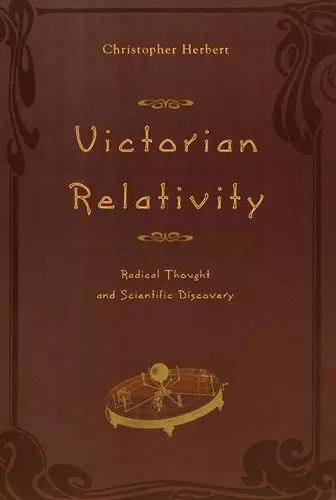Victorian Relativity
Radical Thought and Scientific Discovery
Format:Paperback
Publisher:The University of Chicago Press
Published:2nd Jul '01
Currently unavailable, and unfortunately no date known when it will be back

This book reexamines the origins of relativity, linking it to broader cultural and political movements of the 19th century, as seen in Victorian Relativity.
In Victorian Relativity, Christopher Herbert challenges the widely held belief that the theory of relativity in physics originated solely from Albert Einstein's brilliance. He delves into the intricate connections between scientific relativity and various forms of relativism, including ethical, cultural, and epistemological perspectives. By doing so, Herbert invites readers to reconsider the historical narrative surrounding this pivotal scientific concept.
The author explores a forgotten tradition of avant-garde thought that emerged in the 19th century, which was united by the principle of 'the negation of the absolute.' This movement, under the banner of 'relativity,' sought to challenge prevailing norms and ideologies. Through a careful examination of influential figures such as Charles Darwin, Karl Pearson, and James Frazer, alongside Einstein, Herbert illustrates how the notion of relativity influenced diverse fields, instigating significant changes.
Furthermore, Victorian Relativity argues that the early relativity movement was not merely a scientific endeavor but was deeply intertwined with political and cultural reform. By highlighting the radical critiques of authoritarianism that emerged during this period, Herbert effectively demonstrates how the idea of relativity transcended its scientific origins, impacting broader societal transformations. This book is essential for anyone interested in the intersections of science, culture, and politics in the Victorian era.
ISBN: 9780226327334
Dimensions: 23mm x 16mm x 2mm
Weight: 482g
264 pages